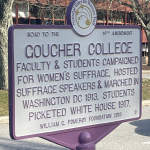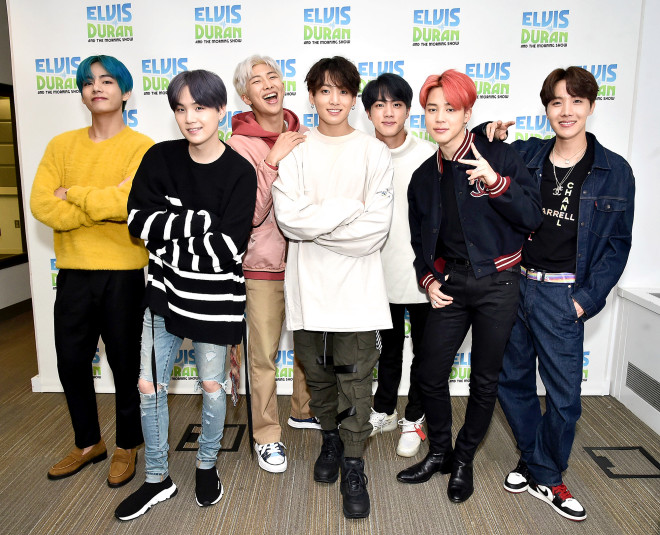Why the Current Higher Education System is Flawed
By Edward Jancuk
Recent generations are facing rising costs of attending college, an increase in job market competition, and more dilemmas facing our society that require new perspectives. The purpose of going to college has been muddled with the need to pay off student loans directly after earning a degree. Therefore, prospective students who choose to attend expensive four-year universities limit their horizons to specializations that they think will give them they most immediate high paying job. This financial burden prevents students from finding their passion and discourages them from pursuing careers that will benefit society.
College has shifted from exploring career options to a place where students study the subject they believe will pay the best. The distribution of majors has shifted from a diverse field of majors to a small pool of degrees related to business, criminal justice, and S.T.E.M. (Yassky). Daniel Yassky’s article in the Princeton student paper speculates this trend and how it hinders both students and society. Pursuing one specific, high-paying major may seem as if it will provide financial stability, but this prevents students from adapting to fluctuations in the job market. A broad liberal arts education will prepare scholars for the everchanging demands of the working world.
Receiving enough financial aid and scholarships have the potential to alleviate the constraints that finances hold over other student’s heads. Personally, this has given me the freedom to open myself to a greater array of responsibilities other than my major, such as being a student-athlete and working on campus within the first semester.
Going to a liberal arts college has allowed me to witness the importance of a diverse field of study as well. The importance of broad study is backed up by the origins of liberal arts education as a method of study. Ancient Nile Valley civilizations and Greek Theorists promoted liberal arts because they were believed to deepen one’s understanding of themselves and the world around them (Cook 684). This origin shows that studying with a more humanistic perspective allows students to discover who they truly are and what they want to do. This deeper connection to one’s studies will ultimately benefit society, rather than focus them on material possessions. Upon the further development of the higher education system, liberal arts are now seen as inferior to more specialized and rigorous studies (Cook 684). The erosion of broader studies was for materialistic and financial purposes, preventing scholars from finding their passion and instead focusing on making money. Individuals seek out the greater good in society when their focus is shifted away from money.
Without any personal experience of how an economic burden would have affected my choices in college so far, I searched for others who have had to face this sort of problem. One graduate from Rutgers, who had studied Marine Biology and minored in Environmental Protection, traveled to Florida and Barbados to work with sick or endangered creatures, and was offered a position training dolphins in Florida when he graduated. He now works as a supervisor for a “big-box retailer” (Nova). To give up years of hard study to go into a field of work with no correlation was a decision based off money. This 27-year-old would not have been able to make as much money as a trainer compared to the supervisor position he’s currently stuck in. Another figure from Nova’s article conveys the idea that 70% of college graduates face debt after they graduate. From this information a point can be made- this Rutgers graduate is not alone. If debt has the effect on students to make them “think their life is over” (Nova) and push graduates away from their field of study, why is the price tag on a degree so expensive? Higher education cannot allow for students to become depressed and lead unproductive lives in society when their major does not allow for an immediate high paying career.
College students did not always have to pay an arm and a leg to further their education. Since the competition and need for college was less prevalent, going to college was generally looked at as a benefit to civilization rather than one’s own life. There is now an increasing demand for a college education due to more jobs requiring specialization and achievement. While more students are attending university, since the 1980s the average price of higher learning has more than doubled (Hoffower). Undeniable growth in financial obligation added additional stressors to aspiring and current students. This increase in price correlates with the shift of major distributions. This all ties back into the fact that students’ choice of major is to pay off their debt and become financially stable. Despite all the effort students put into their education and the financial burden they may bring upon themselves, the degree they earn may not guarantee them a job. According to the Washington Post, only 27% of college graduates have a career that utilizes their field of study (Plumer). A system where students pay to earn a specialization which becomes unused is impractical. Since most students are in line with this outcome, the current higher education system is set up to have graduates be unhappy with their career.
Students would make more academic decisions based on personal and public interest if their credit was not at stake. According to research in the Journal of Public Economics, a prestigious university implemented a “no loan policy” (Rothstein 1). This policy eliminates students’ need to endanger themselves with a large sum of debt because expenses are covered by grants given to them. These grants are funded by donations given to schools. Student debt creates a vicious cycle where the students who assume debt are less likely to make donations to the college. With a smaller amount of donations, there are fewer grants for their successors. Not having to assume debt allows for students to feel less pressured into judgements guided by having a high paying career as the outcome. The results exemplified by Rothstein’s study show that students who do not acquire debt have a higher chance to assume “public interest” jobs (Rothstein 1). Even though these positions may not be high paying, they are what students want to do with their life. These public interest positions also give students the freedom to tackle problems that currently hold firm footing across the planet.
Individual wealth is increasingly important to people in our world while global problems and polarization are at an all-time high. Being so focused on the individual grind and success does not help solve problems we all face. The world needs doctors and lawyers, but it also needs thinkers, creatives, and educators who are willing to help reshape the way the world works for the common good. If higher education did not come with such a high price tag, students would focus more on finding their passion rather than finding a job to pay off their debt as quickly as possible. The common good is lost when individual safety is threatened first. Without the comfort of financial stability, students feel trapped in choosing something to gain a sense of security back. Society will advance when the shaping of young minds is placed before the profits of colleges and universities.
Works Cited
Cook, William S. “A Comparative Analysis Between the Nile Valley’s Liberal Arts Tradition and the Development of Western Education.” Journal of Black Studies, vol. 45, no. 8, 2014, pp. 683–707. www.jstor.org/stable/24573589. Accessed 3 Mar. 2020.
Hoffower, Hillary. “9 Ways College Is Different for Millennials than It Was for Previous Generations.” Business Insider, 2018, www.businessinsider.com/how-college-is-different-now-then-millennials-vs-baby-boomers-2018-9.
Jesse Rothstein, Cecilia Elena Rouse. “Constrained after college: Student loans and early-career occupational choices.” Journal of Public Economics, Volume 95, Issues 1–2,2011, Pages 149-163. https://doi.org/10.1016/j.jpubeco.2010.09.015.
Nova, Annie. “How Student Loans Are Making Some People Abandon Their Dreams.” CNBC Investing, CNBC, 18 July 2018, www.cnbc.com/2018/07/17/how-student-loans-are-making-some-people-abandon-their-dreams.html.
Plumer, Brad. “Only 27 Percent of College Grads Have a Job Related to Their Major.” The Washington Post, 2013, www.washingtonpost.com/news/wonk/wp/2013/05/20/only-27-percent-of-college-grads-have-a-job-related-to-their-major/.
Yassky, Daniel. “The Changing Purpose of College.” University Wire, Sep 27 2017, ProQuest. Web. 3 Mar. 2020. https://www.dailyprincetonian.com/article/2017/09/the-changing-purpose-of-college








